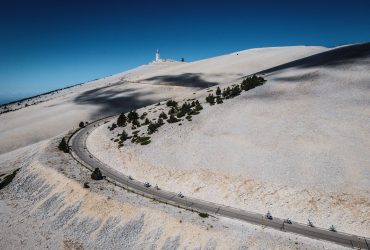On the Great Wall of China, at the North Pole or on Lake Baikal, here are five of the most difficult marathons on the running planet. Because if 42.2 km to run is already a beautiful distance, to do it in these ultra demanding conditions is an exploit.
If the unlikely story of Mira RaiIf you're a child soldier turned top-level runner and you've been tempted to put on running shoes, here's a small selection of extreme events that might give you some ideas for the future...
The marathon is the ultimate distance in the world of running, but the 42.2km you have to cover is obviously not the same if you're doing it on the flat ground of the Berlin event or if you're tackling the same distance on the Great Wall of China. Here are the five most unlikely marathons, held all over the world.
1: North Pole Marathon
The "North Pole Marathon" starts every year from the private Russian ice base of Barneo. Since its first edition in 2002, this is the only marathon in the world to be run entirely on the frozen waters of the Arctic Ocean. Not surprisingly, it's also the world's most northerly marathon. Of course, extreme temperatures have to be endured, as was the case for the 2010 edition, run in a blizzard blowing at 50 km/h and at -20°C. The course is laid out on a 4.2 km loop, to be completed 10 times. The event can be run as a team, while a half-marathon is also on the programme for those who might be put off by the 42.195 km of ice. All that remains is the price: 15,900 euros! And you have to add to that the return flight to Norway (from where another plane will take you to the Russian base). The record time for men is 3 hours 36 minutes, for women 4 hours 52 minutes.
2: Great Wall of China Marathon
Organized since 1999 on part of the Great Wall of China, this marathon is obviously much more demanding than a classic event, with just over 5,000 steps to cover. Every year, 2,500 runners take part in this marathon, while a half marathon and an 8.5 km "Fun Run" are also on the program. The start is in the ancient fortress of Huangyaguan. A six-hour time barrier has been put in place for runners who have not reached the steps leading up to the wall at the 34th kilometer. Please note that there are two separate races: the Great Wall Marathon (which uses the Great Wall of China for 30% of its course) and the more demanding Great Wall of China Marathon, with 80% of the course on the Great Wall.
3: Baikal Ice Marathon (BIM)
Just like the North Pole Marathon, the 42 km race on the famous Siberian lake is obviously a cold one. But unlike the North Pole Marathon, here you will not only be running on the ice, but also on the shores of the oldest and deepest lake in the world. Moreover, the lake is often covered with a layer of soft snow. There are refreshment points every 5 km, which provide a point of reference in this white environment. Finally, it is possible to take part in a half-marathon organised on the same weekend.
4: Tenzing-Hillary Everest Marathon
The main difficulty in this event is attitude. The start of this marathon in the Himalayas is given at an altitude of 5,364 m. If the course is downhill, with a finish at 3,446 m in Manche Bazar (the rallying point for many sherpas in the region), you need to be able to cope with the lack of oxygen due to the high altitude. This marathon is considered one of the highest and most difficult races in the world. After starting at Everest Base Camp, you'll take to the high trails of the Khumbu Valley. A 60 km ultra and a half-marathon are also on the program for this race weekend.
5 : Inca Trail Marathon to Machu Picchu
Like the previous event, this marathon is one of the most demanding in the world. If the landscapes that await you there should brighten up your 42 km on foot, get ready to suffer on the big difference in altitude on the program (6,400 meters of D+). Traced on the paths that lead to the Inca temples, this event is a piece of bravery that the best finish in less than eight hours. It was in fact a Frenchman who won in 2018 with a time of 7:50. Philippe Richet won this 42nd edition whose finish is traditionally set against the magnificent Machu Piccchu. In addition to the altitude and the difference in altitude, the temperatures also vary greatly between 0°C and 26°C.










